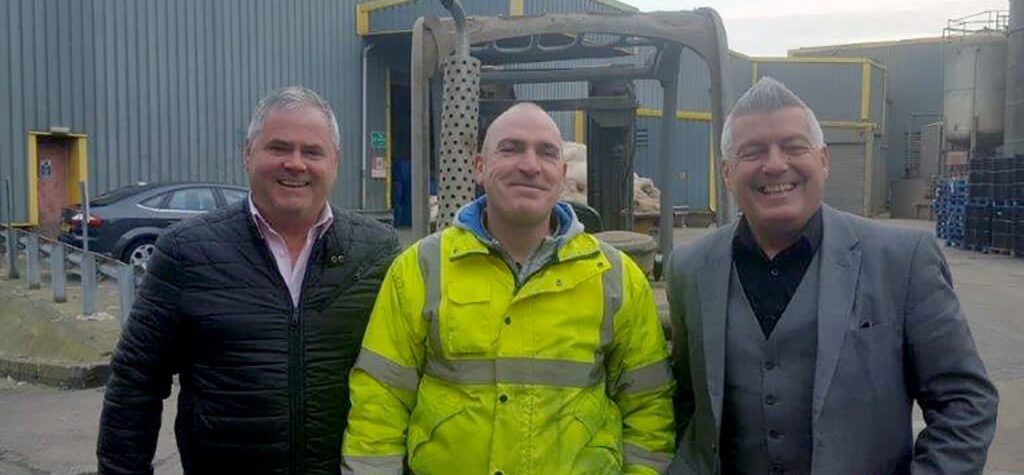“Poverty is the parent of crime” – these are the words originally written by Aristotle often found in the emails and texts sent to me by former prison officers Steve Freer and Val Wawrosz (pictured above). I’m an ambassador, a very proud one, of their Leeds-based charity Tempus Novo (meaning New Time), which helps prison leavers and ex-offenders to find meaningful, sustainable employment. Their work is a stark reminder that we can so easily judge someone for their actions before we understand their history – and that a criminal record can be a life sentence of its own in terms of judgment and barriers to employment.
Why people end up in prison is far from a simple story. “It’s no coincidence that repeat offenders come from extreme poverty”, say Freer and Wawrosz. Around half of adult offenders are reconvicted within a year of being released, which increases to 64 per cent within two years. They add: “Born into a world surrounded by crime, a lack of opportunity, zero education and low aspirations, it’s inevitable that most of them will end up following their peers on a criminal career path. Prison becomes just an inconvenience.”
Necks on the line
Breaking that cycle is not easy. Prison leadership teams tend to be risk averse, understandably, and this often cascades down to the staff. An open and trusting relationship between staff and prisoners is, sadly, not the norm. Yet – bravely – Freer and Wawrosz risked their own jobs to help people into work.
“We had to push the boundaries and test rules,” says Freer. “The establishment felt their security was at risk and were concerned about conflicts of interests. In the end, I was sent to another prison, HMP Wealstun, for six months by the governor while a formal investigation was carried out. For six months I didn’t know if I’d have a job at the end of it.”
Luckily, the investigation was closed, but the experience has amped up Freer and Wawrosz’s drive to prove that what they were doing could work. They truly believed they were tackling a wider societal problem. They were not willing to let a governor stop them.
After being in and out of prison since the 1990s, Simon Wallage – who’s agreed to be named – first heard about Tempus Novo in 2015, when he was on C wing at HMP Leeds. He approached Freer to ask for help and was given his phone number. On home leave from prison that December, Freer managed to get him straight in for an assessment. By February, Wallage was in work. He remains so today.
The average cost of a prison place per year in England and Wales is around £44,600. Not only are Tempus Novo helping make society safer, helping prison leavers overcome the barriers of a criminal record and breaking the generational cycle of crime, they are also saving the taxpayer some serious bucks.
So far, the duo have helped over 600 prison leavers into work. If half were likely to reoffend, then Freer and Wawrosz have already saved the taxpayer nearly £14 million – and that represents even more than this, if you consider how much each person is now contributing to society through work by putting money back into the economy.
Rethinking rehab
This approach, which makes good sense and is compassionate, appears to be rubbing off in government too. The Ministry of Justice, headed by Dominic Raab (a former lawyer), recently published its Prison Strategy White Paper. It puts a spotlight on rehabilitation and includes measures to help people overcome addictions, gain skills and find employment. It’s movement in the right direction.
Contractually obliged?
However, research shows that when the government publishes a strategy, it doesn’t guarantee that policies are actually implemented. Watchful eyes must hold in order that the paper’s proposals go through. But there is also more that can be done to empower the best performing governors and remove barriers that smaller organisations face when trying to help. Just one example is making government contracts more accessible for small organisations like Tempus Novo. The procurement process is dominated by much larger companies – yet these don’t always deliver the kind of tailored, high-quality support offered by Freer and Wawrosz.
I’ve had the privilege of seeing how Tempus Novo is changing people’s lives and improving society first hand (interested readers can find out more about it online). There are others like them. One is The Clink, which runs restaurants in UK prisons and also helps prison leavers into work. But these organisations should be the norm, not the exception. If we are to move towards a safer and happier society, then government policy must support these organisations wholeheartedly and empower as many prison leavers as possible to live their best lives. The good that will be done will allow them to thrive and make a more prosperous society for us all.
Dolly Theis is a Research Associate at Cambridge University’s MRC Epidemiology Unit and a Co-Founder of the 50.50 Parliament campaign


